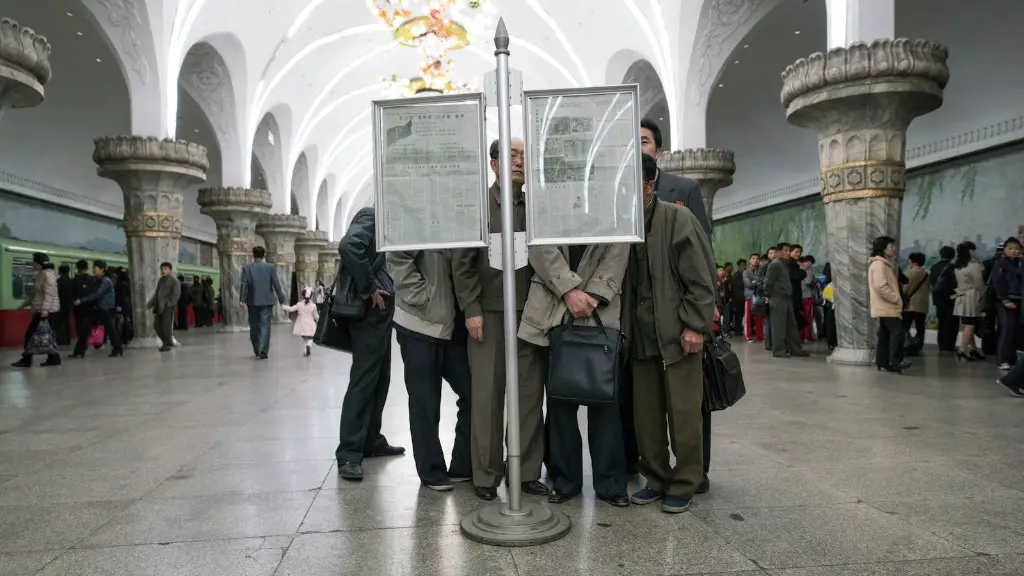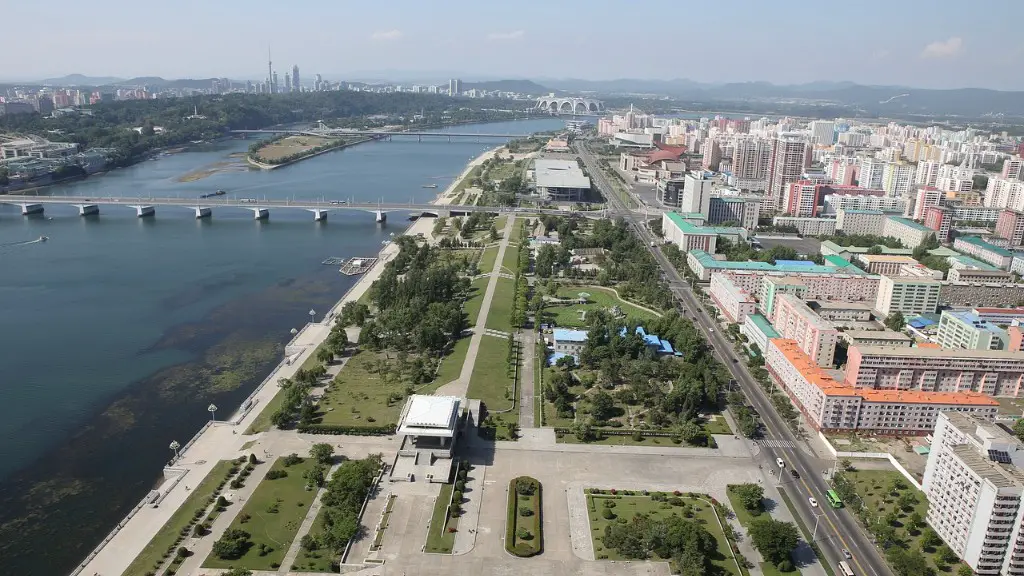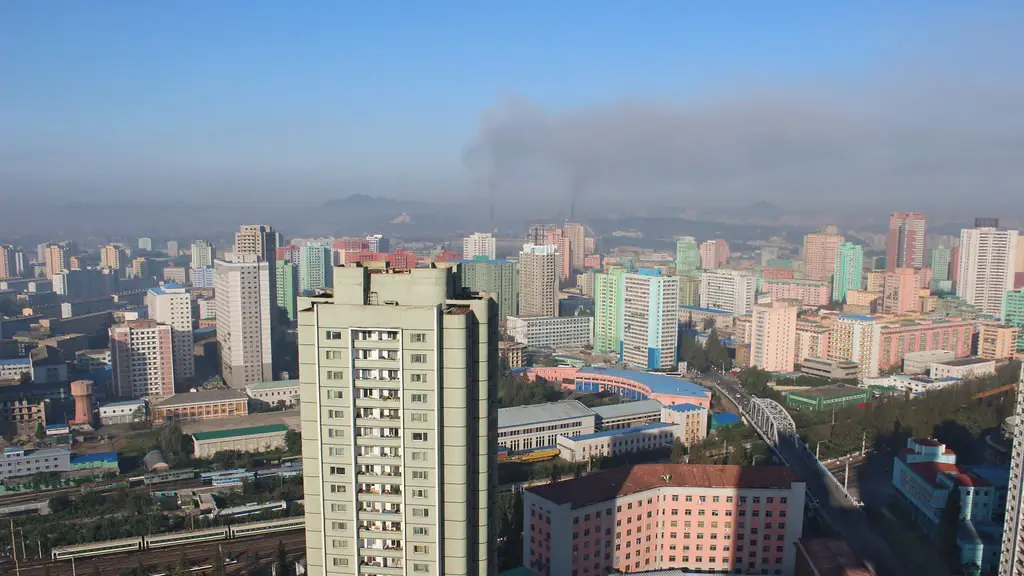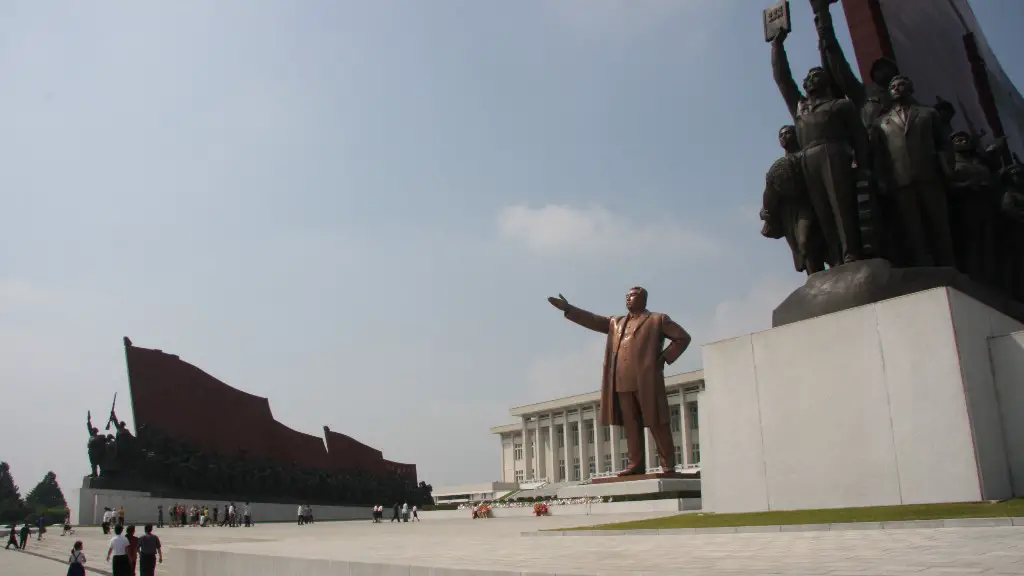How Does Kim Jong Un Rule North Korea
Since his assumption of power in December 2011, Kim Jong Un has ruled North Korea with an iron fist. He continues the family dynasty established by his father, Kim Jong Il, and grandfather, Kim Il Sung. Kim Jong Un’s rule has been characterized by increased military strength and the further isolation of North Korea from the international community. While his views remain largely unknown, the international community’s perception of Kim Jong Un has been largely critical.
The sociopolitical structure of North Korea is a one-party dictatorship, with Kim Jong Un holding absolute power. One of the hallmarks of Kim Jong Un’s rule has been the elevation of his family to High Office. His younger sister Kim Yo Jong has become the second most influential person in North Korea, while his other relatives make up most of the high-ranking military personnel and the ruling party’s Central Committee.
Kim Jong Un’s rule has also been characterized by suppression of dissent, censorship of the media, and persecution of those perceived to be a threat to the regime. This has been seen in the large-scale arrests of political activists and the widespread use of torture and public executions. In addition, Kim Jong Un has allowed the development of nuclear weapons, despite a United Nations Ban, and engaged in saber rattling with South Korea, Japan, and the United States.
In terms of his international relations, Kim Jong Un has preferred to keep North Korea isolated and has maintained only a few diplomatic relationships. This has led to increased tensions with the United States and other Western powers, as well as with regional powers such as Japan and South Korea, many of whom view Kim Jong Un’s leadership as a threat to international stability and security.
The reasons behind Kim Jong Un’s bellicose behavior and heavy-handed rule remain a mystery to the outside world. It is possible that he might be attempting to portray himself as a strong and decisive leader, or that he may be trying to distract public attention away from the country’s economic problems. Whatever the true motives behind his actions, it is clear that Kim Jong Un is an authoritarian leader who wields power with little regard for the welfare of his citizens or the international community.
The Nuclear Program
One of the main reasons for Kim Jong Un’s international notoriety stems from his aggressive nuclear policy, which goes against United Nations regulations. Kim Jong Un has repeatedly tested nuclear weaponry and ballistic missiles, further isolating North Korea from the international community. This has created tensions between North Korea and its neighbors, and has been seen as an unacceptable display of bellicosity and aggression by the outside world. Kim Jong Un has also rejected numerous offers from international powers to engage in dialogue, upending international efforts to bring about diplomacy and an end to his nuclear ambitions.
The reason behind Kim Jong Un’s refusal to enter diplomatic negotiations and his insistence on progressing with the development of nuclear weapons is largely unknown. It could be a way for him to show the strength of the North Korean people or a bid to gain influence on the world stage. Whatever the true motives, the international community has seen Kim Jong Un’s North Korea as a rogue state and has, in turn, placed tougher sanctions and restrictions upon the hermit kingdom.
Human Rights Abuses
Human rights abuses remain a major concern in North Korea under the rule of Kim Jong Un. In North Korea, citizens are unable to exercise their right to freedom of speech, assembly, and religion. This has been widely condemned by the international community and human rights bodies such as Amnesty International. Reports of inhumane treatment in North Korean prisons, labor camps, and execution sites have brought further criticism from the international community. Despite accusations of human rights abuses, Kim Jong Un has been unrepentant and appears to have continued his oppressive approach.
The people of North Korea are subjected to extreme poverty, food shortages, and economic instability under the rule of Kim Jong Un. Reports of widespread malnutrition have been widespread and conditions for North Korean people remain dire. This situation has been exacerbated by international sanctions, further limiting economic opportunities for North Koreans. Despite the best efforts of international organizations to alleviate the suffering of citizens in North Korea, Kim Jong Un has refused to allow aid workers access to the country.
Political Executions
Political executions remain a grim constant under Kim Jong Un’s rule. Reports of high-ranking officials being purged in North Korea are not uncommon and Kim Jong Un has been particularly ruthless in his treatment of senior personnel. This has become a way for Kim Jong Un to keep his political rivals in check and present a unified front to the international community.
It remains unclear why Kim Jong Un has resorted to harsh punishments in dealing with political opponents, though some suggest it could be an attempt to prevent threats to his rule and ensure absolute loyalty from his subordinates. The international community has viewed Kim Jong Un’s actions as an egregious violation of human rights and has called for an end to the executions. Nonetheless, these calls have gone unheeded and executions continue in North Korea.
Censorship
Under Kim Jong Un’s rule, censorship of media and communication has been rampant. North Koreans have been subjected to an environment where their access to information from the outside world is limited, with news sources strictly regulated by the government. As a result, North Koreans are largely unaware of events occurring beyond their country’s own borders. This has also had implications on North Koreans’ ability to criticize the regime, with any form of dissent quickly being quashed.
Kim Jong Un has also been accused of exiling troublesome citizens to remote locations and internment camps, in order to further stifle any potential opposition to his rule. This has been seen as a violation of international law and is a major concern to the international community. The regime remains unpersuaded by such accusations, however, and has continued with its policy of censorship and suppression.
Economic Sanctions
The international community has placed economic sanctions on North Korea in response to Kim Jong Un’s nuclear ambitions. This has severely impacted the economic viability of North Korea, with increased restrictions on goods, goods prices, and currency movement. Furthermore, international aid has become more difficult to acquire, contributing to the poverty and suffering of the North Korean people.
The economic sanctions have been seen as an important tool for the international community in order to limit North Korea’s ability to acquire nuclear weapons. Nonetheless, it has been viewed by many as an overly aggressive approach with devastating consequences on the North Korean people’s livelihoods. This has further heightened tensions between North Korea and the international community and brought increased criticism upon Kim Jong Un’s regime.
Relations with South Korea
Relations between North Korea and South Korea remain fraught, with increased tensions in the wake of Kim Jong Un’s policy of nuclear brinksmanship. North Korea has conducted a number of provocative military drills near the South Korean border and has regularly threatened South Korea with destruction.
This has led to a heightened sense of insecurity in South Korea and has generated an atmosphere of fear and animosity. Kim Jong Un has largely resisted international efforts to establish a more cordial relationship between North and South Korea, instead insisting on further isolation and hard-line policies. This has been seen as a serious threat to international stability, with the potential for open conflict between the two countries being a major concern.
Future Prospects
The future prospects of Kim Jong Un’s rule remain uncertain. While he has maintained his grip on power so far, there is the potential for a power struggle or resistance from within the country. This could be a result of economic restrictions or a desire for reform from a younger generation of North Koreans.
Regardless, it is clear that the international community will continue to view Kim Jong Un’s rule with suspicion and mistrust. His nuclear ambitions and disregard for international law have created an unstable and unpredictable situation in the Korean peninsula, one that could have serious implications for global security.




